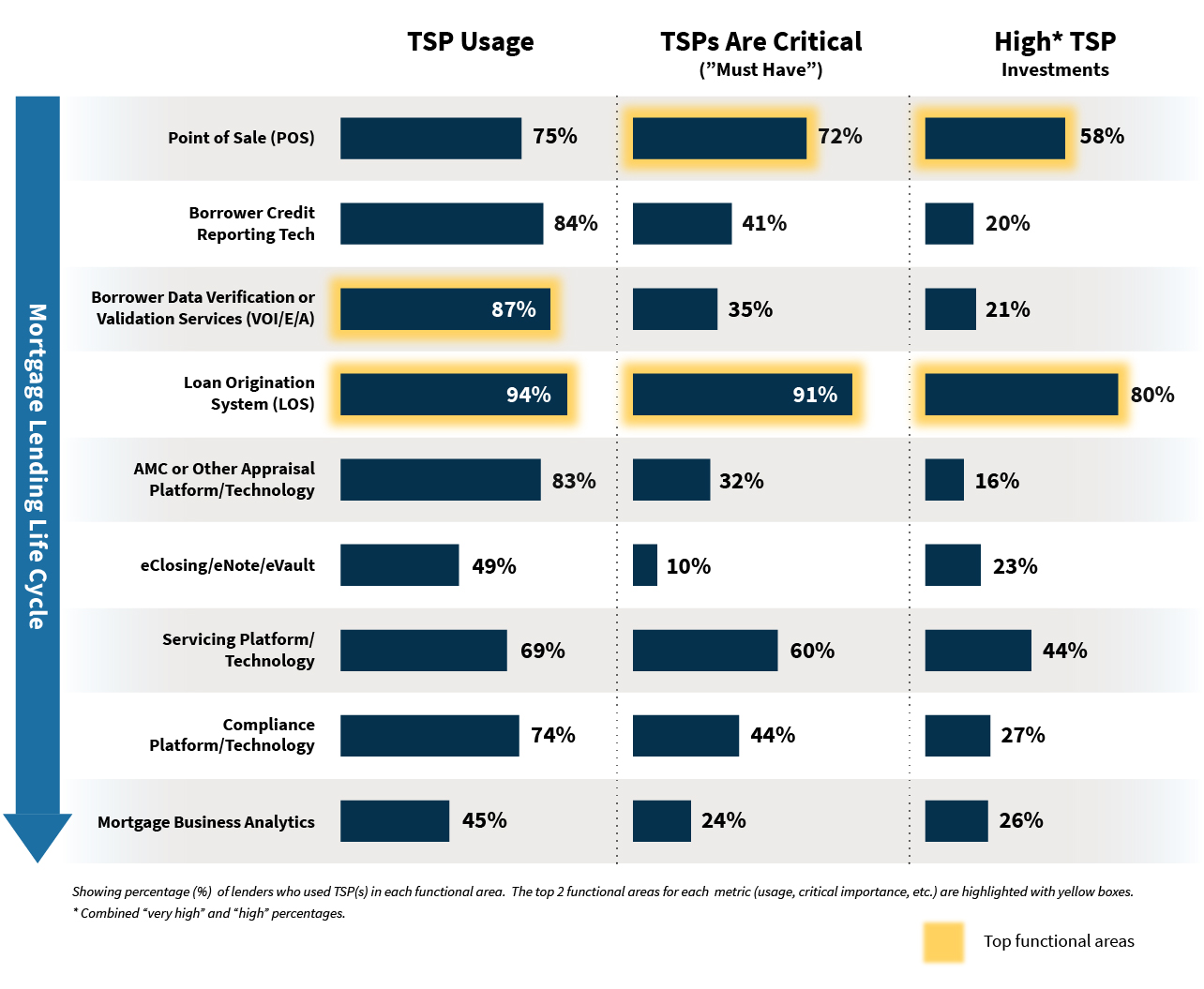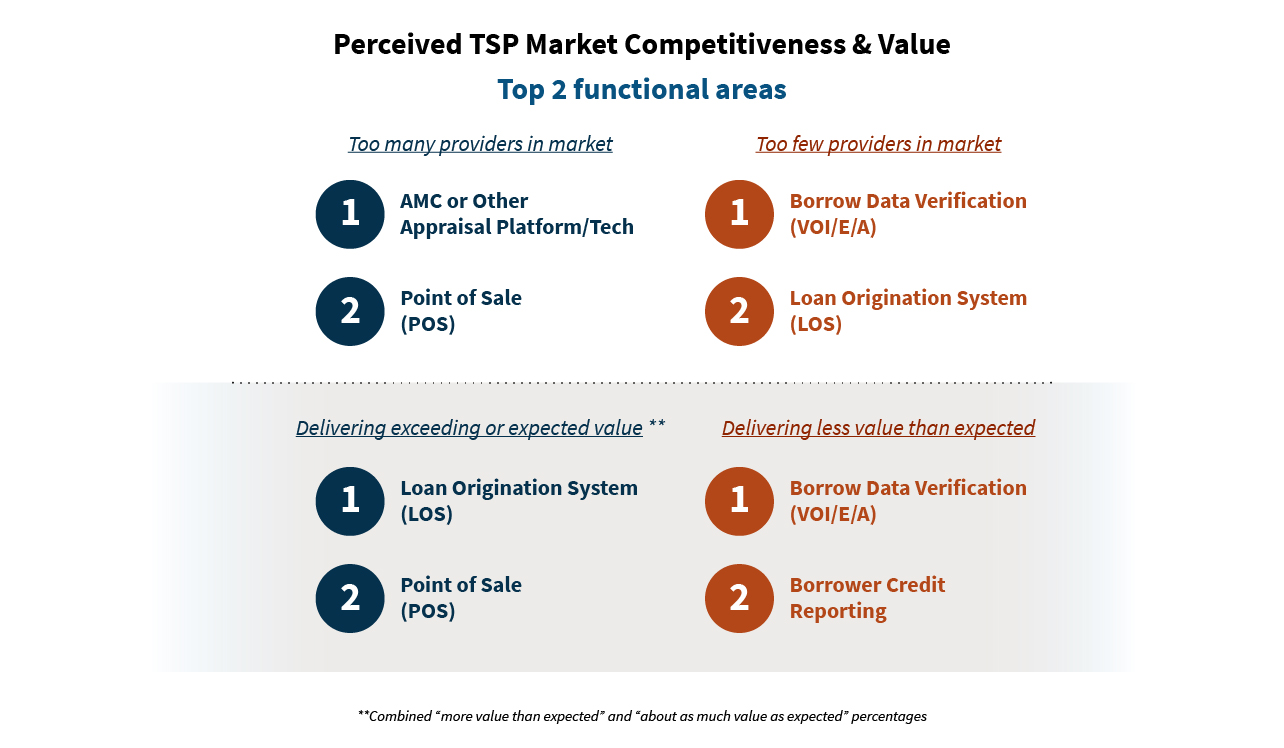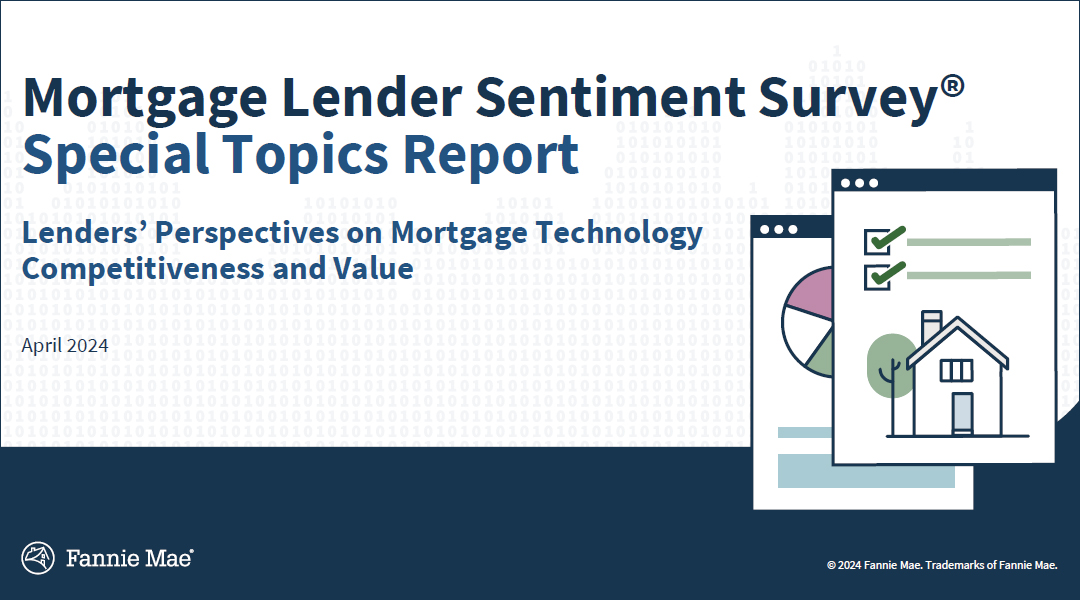Mortgage Lenders View TSPs as Indispensable (but Expensive) Partners
Over the past decade, as mortgage-related services have increasingly moved toward digitalization, Technology Service Providers (TSPs) have become an essential part of lenders' day-to-day operations. Mortgage lenders leverage TSP technology offerings to help improve loan quality, reduce origination cycle time, and drive a better customer experience, among other benefits.
Earlier this year, Fannie Mae's Economic and Strategic Research (ESR) Group surveyed nearly 200 senior mortgage executives to better understand how they feel about the TSP marketplace, as well as their experiences with the various services offered. Our survey considered solutions and applications spanning the entire mortgage lending life cycle, including those related to point of sale (POS) systems, borrower credit reporting, verification of borrower income / employment / assets (VOI/E/A), loan origination systems (LOS), appraisals, closing, servicing, compliance, and business analytics.
Among the key findings:
- When selecting TSPs, lenders cited cost considerations, functionality, and integration capabilities as the most important criteria. These criteria were also the top three listed in 2016, when we last surveyed lenders on this topic. This time around, however, cost considerations leapfrogged the others to become the most important criterion; in 2016, integration was cited as most important.
- TSP technology offerings for LOS and POS solutions are considered by most lenders as business critical (or "must haves"). Given their criticality, LOS and POS solutions also ranked highest in terms of total TSP investment, which includes headcount and/or budget invested toward implementation and usage.
- The majority of respondents reported that the value they receive from their LOS TSP investments matches or exceeds their expectations, but many believe that there are too few competitors in this space.
- By contrast, lenders see the investment returns on VOI/E/A and credit reporting TSP solutions as delivering the least value relative to expectations. Here, too, many respondents believe there to be a lack of competitive offerings.
Click image above for larger view
As part of the survey, we also encouraged lenders to share their thoughts about the TSP marketplace generally and the value of their investments. In their comments, lenders expressed particular frustration with the rising cost of TSP solutions, which many believe is driven by a lack of competition. This frustration was most prevalent among TSP solutions focused on LOS, borrower credit reporting, and borrower VOI/E/A. Some lenders pointed out that the costs in these areas have climbed and continue to rise, leading to significantly increased loan origination costs and, because these expenses are sometimes passed through to consumers, higher borrower closing costs.
Click image above for larger view
Mortgage lenders face tremendous cost pressures in today's higher rate, lower volume business environment. Many of the lenders surveyed mentioned that they would like to see more competition in the TSP marketplace to help alleviate some of these costs, but they also acknowledged that the barriers to entry in the technology space are often high. Additionally, respondents noted that new entrants' functionalities might be limited, and the up-front integration challenges, which are typically costly, could discourage many lenders from even considering new providers. Furthermore, even for the functional areas in which lenders believe there is ample competition, some commented that they lack the bandwidth to research new options. In the end, while the mortgage lending community views TSPs as indispensable partners, the rising costs required to implement, maintain, and use their services is top of mind for many lenders.
To learn more, read our Fannie Mae Mortgage Lender Sentiment Survey Special Topic Report, "Lenders' Perspectives on Mortgage Technology Competitiveness and Value."
Opinions, analyses, estimates, forecasts and other views reflected in this commentary should not be construed as indicating Fannie Mae's business prospects or expected results, are based on a number of assumptions, and are subject to change without notice. How this information affects Fannie Mae will depend on many factors. Changes in the assumptions or the information underlying these views could produce materially different results.





